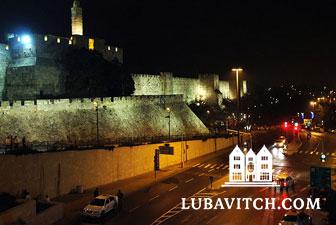Cut off shorts, t-shirts, flip-flops: Israeli backpackers in Thailand don’t shed their travel uniforms when they join Chabad for the saddest day on the Jewish calendar, and that suits Rabbi Yosef Kantor just fine.
“Come as you are Judaism,” at the Jewish Association of Thailand comes in many styles: as a taste of home ala hot pita served up in their Bangkok café and announcements about holiday services blasted from megaphones mounted on tuk tuk motor carts. But as summer numbers peak, Chabad draws a different, more contemplative crowd off the streets with a no-frills offer to commemorate the day of fasting and mourning known as “Tisha b’Av.”
Most who enter Bangkok Chabad’s doors on Tisha b’Av already know what they are looking for. As a day when eating, drinking, bathing, leather shoes are just the beginning of the off-limits lists for the day, Tisha bAv is not where most choose to start their exploration of Judaism. Israelis already aware of the traditions of the day stop in at Chabad for a chance to pray and to hear the reading of the Eicha, Lamentations, scroll.
“Religious observance is often habitual,” said Rabbi Kantor. When Israelis are in Thailand, “they have to deal with religion in their own mature terms. They have a chance to open up to new vistas.”
In Israel, the mood of the day that commemorates the destruction of the first and second Holy Temples in Jerusalem, the loss of sovereignty, death and exile that went with it, draws Jews from all factions toward the Western Wall. Today when Israel’s relationship with its land is tenuous, boundaries shifting in accord with political maneuvers, Tisha b’Av is stirring, emotional.
The power of the day tugs at Israelis all the way to Los Angeles. Seconds before speaking with Lubavitch.com, Rabbi Amitai Yemini of Chabad Israel Center flipped open his cell phone to answer a call from a secular Israeli who wanted to know when the fast began.
“They fast even if they don’t come to hear Eicha,” said Rabbi Yemini.
However, like most Israelis, Jews around the world are unaware of Tisha b’Av. The day lacks the glitz of Chanukah, the starring role of Yom Kippur, the unusual foods of Passover, the masquerade mystique of Purim. Matty Bryski of Chabad of Conejo devotes several sessions of her weekly classes to the day’s background and significance to address the lack of knowledge. It takes some telling, explaining why a temple destroyed nearly 2000 years ago should still capture of piece of the heart. To gain an edge, Mrs. Bryski takes class participants on a virtual tour of the Holy Temple via a computer simulation program.
Multimedia also plays a role at Chabad of Brooklyn Heights, NY. After a day of lectures and classes, a screening of the documentary “Paperclips” will cap Tisha b’Av activities, which are a joint effort between several area synagogues. That a group of adults who’ve gone without food and drink for nearly 25 hours would want to chill out with a movie is no surprise. What is out of the ordinary, though, is the 100 or so people who showed for Chabad’s Eicha reading.
“When it comes to sadness, people turn up to support each other,” said Rabbi Ari Raskin of Chabad of Brooklyn Heights. He anticipates that bigger crowds for Tisha b’Av may be a growing trend. “People used to wish each other an easy fast. Now they say, ‘have a meaningful fast.’ A lot of these rituals are become much more accessible, and much more practiced.”

Be the first to write a comment.